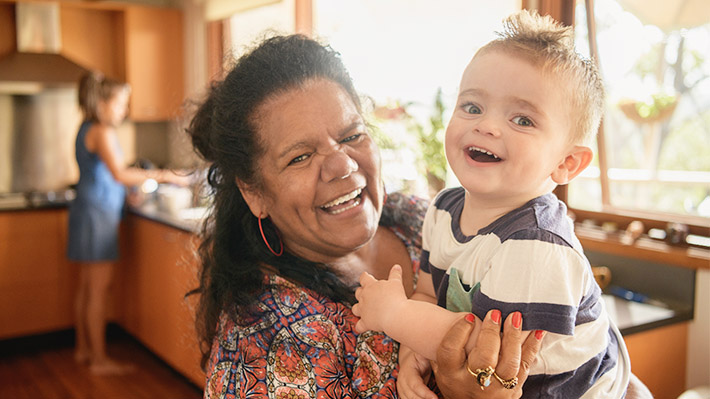Buying a house: what to do when it's your first
1 July 2022
Section Heading
There’s a likelihood that buying a house for the first time is going to be one of the most exciting and satisfying moments of your life.
This is because you’ll be able to do exactly what you want with it. You’ll be able to decorate it how you like, implement the fixtures you’ve always wanted and live in it as you please. And nobody will be able to tell you otherwise because the home will belong to you.
The thing is, the road to home ownership isn’t a straight one. There will be hurdles to leap over and hoops to jump through. If you’re not entirely sure what buying a house requires, read on to get yourself started.
Save, save, save! Always be saving
If you’re considering buying a house for the first time, the first thing you need to do is save, save, save. Then save some more.
Ideally, you’ll be putting aside enough cash to make up a 20% deposit for the home you’re looking to purchase as well as enough to cover stamp duty and other related fees such as Lenders Mortgage Insurance. The bigger your deposit is, the better off you’ll be because you’ll be paying less interest over the long run.
The trick to gathering enough cash is to create a budget. Use the budget to work out exactly how much money you’re earning and what your expenses are. Then work out how much you have left to put towards the home loan deposit without compromising your current lifestyle too much.
Get started on creating your budget using MoneySmart’s budget calculator.
Remember, buying a house is a long-term commitment. Even with a sizable deposit, you’ll still be paying off your home loan for many years to come. The key to maintaining this commitment is to live a healthy, balanced life during this period so be realistic about how much money you can put aside.
Find a great home loan interest rate
Taking out a home loan is essentially taking out a large, long-term debt. This is why finding a great home loan interest rate should be one of your highest priorities. A difference of just 0.5%p.a. could save you a ton of money over many years.
To get the best home loan interest rate possible, make sure you get in touch with at least a few lenders. By doing so, you may even get a home loan option tailored to your personal situation.
If you’re not confident about contacting lenders yourself, you may want to touch base with a licensed mortgage broker. The mortgage broker should be able to help you with a variety of challenges after they’ve taken the time to understand your needs, goals and help you work out how much you can borrow.
First, they can act as an intermediary between you and lenders. Secondly, they can play the role of an educator and take the time to explain how home loans really work. Lastly, they can help you apply for home loans and manage the process from start to settlement so you don’t need to.
Superannuation can help you buy a house (First Home Super Saver Scheme)
The Commonwealth Government offers the First Home Super Saver (FHSS) Scheme to individuals who are looking to boost their savings to buy their first home. Super SA’s Triple S is ineligible for the FHSS scheme, however the Super SA Select and Flexible Rollover Product allow you to take advantage and lets you build your deposit within your superannuation account1.
This gives you a few unique advantages over trying to build your deposit in a regular bank account. Through super and the help of the FHSS Scheme you may be able to reduce your income tax through before-tax contributions.
The FHSS Scheme allows voluntary super contributions of up to $15,000 per financial year. You can contribute a maximum lifetime cap of $50,000. Once you’ve found your dream home, you can withdraw up to $50,000 and put it towards your first home.
If you have a partner, they too have a maximum lifetime cap of $50,000. This means you could make up to $100,000 in super contributions to save for your first home.
And remember you must apply for and receive an FHSS determination from the ATO before signing a contract for your first home or applying for release of your FHSS amounts.

Don’t forget the insurance before property settlement
Having home insurance isn’t legally required, however, the majority of lenders require that you have building insurance before settlement as part of their terms and conditions. We highly recommend you have home insurance just in case your property somehow sustains damage. You never know when something unfortunate could happen. And after settlement, without insurance, the cost of repair will be entirely out of your pocket.
This would be highly unfortunate if you’ve spent years saving your deposit, finding your dream home, seeking out the perfect home loan rate and talking to a ton of mortgage brokers...only to have to spend even more due to an accident.
Before you sign the contract that finalises the purchase of your property and puts you into the settlement period, make sure you have your home insurance in place.
Keen on buying a house in the near future?
If you’re trying to save up the deposit for your dream home, it might be worth considering the FHSS Scheme. After all, you may be able to reduce your income tax through before-tax contributions while simultaneously helping yourself get set up for a post-work life.
If you’d like to know more about the FHSS Scheme1 which is available to members of Super SA Select and Flexible Rollover Product investors, feel free to get in touch with our Member Services team on (08) 8214 7800. They’d be happy to chat.
If you’re trying to get your finances in shape to buy a home but need help, you may want to speak with a financial adviser. For financial planning advice, speak to a licenced financial planner. You can visit the Financial Advice Association Australia (FAAA) website https://faaa.au/ and access their “Find a Planner” service to locate an FAAA member near you.



